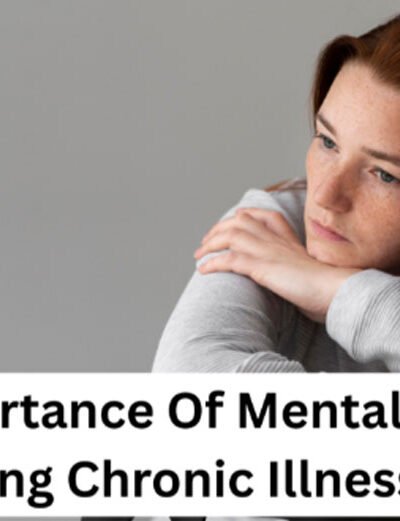Chronic illness impacts much more than mere physical health. It may redefine daily routine, social connections, and even a sense of self.
While the medical solution aims to manage symptoms, mental well-being is too often relegated to the background. Yet mental wellness has a direct impact on how individuals adapt, heal, and preserve quality of life.
The short-term needs of living with a long-term illness can cause anxiety, depression or stress. These, over time, can have an impact on adherence to treatment and resilience in the long term. Mental health services are not an add-on—it is part of the care plan.
With this understanding comes a connection that permits patients, their families, and medical professionals to work more in harmony. Open communication, beneficial strategies, and timely intervention can be transformative.
By equating mental health, care of chronic disease is further interwoven, long-term, and empathetic—enabling people not only to persevere, but to truly live.
The Overlooked Connection Between Body and Mind
Physical and mental health go hand in hand. One adjustment will lead to an adjustment in the other.
Certain chronic illnesses like diabetes, arthritis, heart disease, or autoimmune disorders need round-the-clock medical attention. But in ongoing chronic disease care, the psychological toll can be just as demanding.
Having recurring symptoms can frustrate and confuse one. Simple actions are difficult to perform with low focus and energy. Gradually, emotional burden affects them.
They become isolated, lose interest in things they used to have fun doing, or have problems with self-esteem. Dismissing these mental health issues can exacerbate the illness itself.
Stress and depression both raise inflammation, decrease immunity, and impact sleep. This spiral feeds into the illness and the mental distress. Understanding this relationship is a vital first step toward effective whole-person care.
The Emotional Landscape of Chronic Illness
The psychological adjustment toward living with a chronic illness is seldom linear. There may be acceptance for a period of time, followed by relapse. There may be a flare, a new symptom, or an unexpected medical complication that provokes fear about the future.
Lots of people experience grief for the life that they had prior to getting the diagnosis. This does not refer only to prowess in physical form-this can mean career aspirations, social ambitions, or self-reliance.
Some adapt easily, whereas others take time and support to process such changes. The social factors are also involved. There is a feeling of isolation because friends and family do not understand much about the condition.
It may carry that extra burden of an emotional complication because there is stigma, especially regarding those illnesses that are invisible to others. Without open conversation and validation, these feelings can deepen over time.
Why Mental Health Care Improves Physical Outcomes
Addressing mental health is not just a matter of emotional well-being; it can directly improve physical health outcomes. Patients suffering from depression or anxiety may find it even more difficult to stick to treatment plans, attend appointments, or manage their medication schedules.
When mental health is supported, people act more responsively to medical recommendations and become more willing to look after themselves. Coping skills can be enhanced through therapy, counseling, and peer support and thus help in building resilience.
Studies also indicate that stress management can help regulate blood pressure, enhance immune function, and reduce inflammation. By doing so, mental health care is transformed into an effective means to treat the illness itself.








Leave a Reply